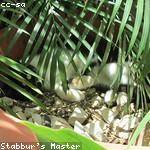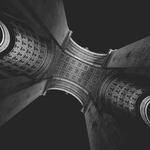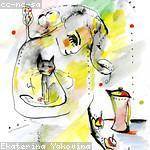"Title
There was a man who used to give loans to people. He would say to his servant: When you come to an insolvent person overlook his debt. Perhaps Allah would overlook our sins. So, the man met Allah (after death) and He overlooked his sins
Hadith_Text
Abu Hurayrah (may Allah be pleased with him) reported that the Prophet (may Allah's peace and blessings be upon him) said: ""There was a man who used to give loans to people. He would say to his servant: 'When you come to an insolvent person overlook his debt. Perhaps Allah would overlook our sins.' So, the man met Allah (after death) and He overlooked his sins.""
Explanation
The meaning of the HadÄ«th: ""There was a man who used to give loans to people"", meaning: he used to deal with them through loans, or sell goods to them for a deferred payment. He would say to his servant who used to collect debts from the people: ""If you come to a debtor and he does not have anything with which to can pay off his debt due to his inability, then “overlook itâ€, either by leaving it without asking him insistently to repay it, or by accepting whatever he has with him, even if its value is slightly below the value of the debt. “Perhaps Allah will overlook our sins,†meaning pardon us due to the fact that we our overlooked His slaves debts and because we made things easy for them and removed their distress. The man said this because he knew that Allah, the Exalted, rewards the slaves for their benevolence towards His slaves in a way that is commensurate with their action, and because he knew that Allah, the Exalted, does not allow the reward of the one who does good to be lost (without reward). “So the man met Allah (after his death), and He overlooked his sins†as a reward from Him for his merciful treatment of people, for his gentleness with them, and for making things easy for them. In another narration this reward was given even though he had never done anything good as indicated by the narration of An-NasÄ’i and Ibn HibbÄn which reads: “There was a man who never did any good, and he used to give loans to people. He would say to his messenger: ‘Take what is available with them of the debt, and leave what they are not able to repay and overlook it. Perhaps Allah, the Almighty, would overlook our sins...’†So, when the man had good expectations about Allah, the Exalted, and dealt with Allah’s slaves with benevolence, Allah overlooked his sins. A person always reaps what he sows.
Benefits
When someone commands goodness, he attains the reward even if he does not do the act himself.
The legislations of those before us are regarded as our legislation unless it contradicts our Shariah.
It urges us to reprieve insolvent debtors and be lenient when we claim our dues.
Grade
Sahih/Authentic.
Takhrij
[Al-Bukhari and Muslim]
"
לְגַלוֹת פוסטים
חקור תוכן שובה לב ונקודות מבט מגוונות בדף Discover שלנו. חשוף רעיונות טריים והשתתף בשיחות משמעותיות
"Title
No one has ever eaten food better than that which his hands have earned. Indeed, Prophet Dawūd (peace be upon him) used to eat from the earnings of his own hands
Hadith_Text
Abu Hurayrah (may Allah be pleased with him) reported that the Messenger of Allah (may Allah's peace and blessings be upon him) said: ""DawÅ«d (peace be upon him) used to eat only from the earnings of his own hands."" Al-MiqdÄm ibn Ma‘d Yakrab (may Allah be pleased with him) reported that the Prophet (may Allah's peace and blessings be upon him) said: ""No one has ever eaten food better than that which his hands have earned. Indeed, Prophet DawÅ«d (peace be upon him) used to eat from the earnings of his own hands.""
Explanation
The Prophet (may Allah's peace and blessings be upon him) informed us that Dawūd (peace be upon him) used to eat only from the earnings of his labor. He was a craftsman who was good at making shields and other fighting tools. Since the prophets (peace be upon them) used to work and eat from the earnings of their labor, whether that consisted of craftsmanship, agriculture, sheep herding, etc. This is altogether the reason why those who are of a lesser rank are more required to earn through their own labor and avoid the embarrassment of having to ask people for money.
Benefits
Grade
Sahih/Authentic with its two versions.
Takhrij
[Al-Bukhari]
"
"Title
I stood at the gate of Paradise and saw that most of those who entered it were the poor and destitute. The people of means were held back
Hadith_Text
UsÄmah ibn Zayd (may Allah be pleased with him) reported that the Prophet (may Allah's peace and blessings be upon him) said: ""I stood at the gate of Paradise and saw that most of those who entered it were the poor and destitute. The people of means were held back, whilst the people of Hell had been ordered into the Fire. I stood by the gate of Hell, and saw that most of those who entered it were women.""
Explanation
The majority of the people who will enter Paradise are the poor and needy. That is because they have no wealth, so they will not be held accountable for what they did with it, and Allah, out of His great generosity will reward them in the Hereafter to make up for the things they were not given in this worldly life. As for the wealthy and affluent, they will be detained for some time on the Day of Resurrection because of the lengthy reckoning of their accounts, due to the wealth and influence they had as well as their indulgence in their desires and passions. The lawful pleasures of this worldly life entail accountability, and the unlawful pleasures entail punishment. The poor will be spared both because they were deprived of such pleasures. Also, the majority of the denizens of Hell will be women because they complain much and are ungrateful to their husbands.
Benefits
Grade
Sahih/Authentic.
Takhrij
[Al-Bukhari and Muslim]
"
"Title
The narration about Barīrah and her husband
Hadith_Text
Ibn ‘AbbÄs (may Allah be pleased with him) reported regarding the story of BarÄ«rah and her husband: The Prophet (may Allah's peace and blessings be upon him) said to her: ""If you would take him back?"" She said: ""O Messenger of Allah, are you ordering me to do so?"" He replied: ""I am just interceding."" So she said: ""I have no need for him.""
Explanation
Barīrah's husband was a slave named Mugīth, and Barīrah used to serve ‘Ā’ishah (may Allah be pleased with her) before she purchased her, then after ‘Ā’ishah freed her from slavery, she was given the choice whether to stay married to Mugīth or to separate from him (because she had become a free woman while he was still a slave). Barīrah chose to leave him. After this separation, Mugīth used to chase her through the roads of Madīnah crying with his tears flowing down his beard, perchance she would reconsider and go back to him. This was because of his extreme love for her.
The Prophet (may Allah's peace and blessings be upon him) said to Barīrah: ""If you would go back to him, you will receive reward (from Allah) for it.""
She said: ""O Messenger of Allah, are you ordering me to go back to him?""
He said: ""I am only interceding on his behalf.""
So she said: ""I have no desire or need to go back to him.""
Benefits
Grade
Sahih/Authentic.
Takhrij
[Al-Bukhari]
"
"Title
There is a gate in Paradise called Ar-RayyÄn through which only those who fast will enter on the Day of Resurrection. No one else will enter through it. It will be called out: Where are those who used to fast? So they will stand up and proceed towards it. When the last of them has entered, the gate will be closed, and no one else will enter through it
Hadith_Text
Sahl ibn Sa‘d (may Allah be pleased with him) reported: The Prophet (may Allah's peace and blessings be upon him) said: ""There is a gate in Paradise called Ar-RayyÄn through which only those who fast will enter on the Day of Resurrection. No one else will enter through it. It will be called out: ‘Where are those who used to fast?’ So they will stand up and proceed towards it. When the last of them has entered, the gate will be closed, and no one else will enter through it.'""
Explanation
The HadÄ«th informs that there is a door in Paradise called Ar-RayyÄn which is exclusive for the fasting people. On the Day of Resurrection, the angels will call out those who used to fast - obligatory and voluntary fasts - regularly and ask them to enter through that door
— מַרגִישׁ הודעה
"Title
Weigh, and add some more
Hadith_Text
Abu SafwÄn Suwayd ibn Qays (may Allah be pleased with him) reported: Makhramah al-‘Abdi and I brought some linen garments from Hajar. The Prophet (may Allah's peace and blessings be upon him) came to us and bargained with us for some pants. There was a man present who would weigh merchandise (in scales) for a wage. The Prophet (may Allah's peace and blessings be upon him) said to him: ""Weigh, and add some more.""
Explanation
Suwayd ibn Qays and Makhramah al-‘Abdi (may Allah be pleased with him) brought some garments from a town called Hajar to sell them in MadÄ«nah. The Prophet (may Allah's peace and blessings be upon them) went to buy lower garments from them. He bargained with them over the price (An-NasÄ’i's narration says: ""and he bought lower garments from us"", without mentioning the bargaining).
In the market, there was a man who had scales to weigh goods in return for a fee. As he was weighing the goods, the Prophet (may Allah's peace and blessings be upon him) said to him: ""Weigh, and add some more."" He ordered the man to add some more to the side of the scales that held the merchandise so that it would be heavier than the other. This does not mean that the difference in weight would be great and might harm the seller. There should be a slight difference so that the buyer can be certain (and clearly see) that he has taken his full right without any deficiency.
Benefits
Grade
Sahih/Authentic.
Takhrij
[At-Tirmidhi]
"
"Title
Every Ummah has a trial, and the trial of my Ummah is wealth
Hadith_Text
Ka‘b ibn ‘Iyad (may Allah be pleased with him) reported that he heard the Messenger (may Allah's peace and blessings be upon him) say: ""Every Ummah has a trial, and the trial of my Ummah is wealth.""
Explanation
Ka‘b ibn ‘Iyad (may Allah be pleased with him) reported that he heard the Messenger (may Allah's peace and blessings be upon him) say: ""Every Ummah has a trial, and the trial of my Ummah is wealth."" This is a test for people, as wealth distracts one away from acts of worship and makes one forget the Hereafter.
Benefits
Grade
Sahih/Authentic.
Takhrij
[At-Tirmidhi]
"
"Title
When one of you stands up for offering voluntary prayer at night and finds it difficult to recite the Qur'an accurately, and he is unaware of what he is reciting, he should lie down
Hadith_Text
Abu Hurayrah (may Allah be pleased with him) reported that the Messenger of Allah (may Allah's peace and blessings be upon him) said: ""When one of you stands up for offering voluntary prayer at night and finds it difficult to recite the Qur'an accurately, and he is unaware of what he is reciting, he should lie down.""
Explanation
If someone is offering voluntary night prayer, and it becomes hard for him to recite the Qur'an because of drowsiness, until he does not understand what he is saying: then let him lie down until his drowsiness goes away, so that he would not alter or change the words of Allah, for perhaps he might fall into prohibition by reversing its meanings or altering its words, or he might make supplications against himself.
In Al-BukhÄri, Anas (may Allah be pleased with him) reported that the Prophet (may Allah's peace and blessings be upon him) said: ""If one of you becomes drowsy during prayer, then let him sleep until he knows what he is reading.""
Benefits
Grade
Sahih/Authentic.
Takhrij
[Muslim]
"
"Title
Two eyes will not be touched by the Fire: an eye which has wept out of fear of Allah, and an eye which has spent the night guarding in the cause of Allah
Hadith_Text
Ibn ‘AbbÄs (may Allah be pleased with him) reported that the Prophet (may Allah's peace and blessings be upon him) said: ""Two eyes will not be touched by the Fire: an eye which has wept out of fear of Allah, and an eye which has spent the night guarding in the cause of Allah.""
Explanation
The Fire of Hell will not touch an eye that cried out of fear of Allah, the Almighty. When a person remembers the greatness of Allah, His power over His servants, and, at the same time, he recalls his own state and his negligence in fulfilling the rights of Allah upon him, he weeps in hope of receiving Allah's mercy and in fear of His wrath and punishment. Such a person is promised to be saved from the Fire. Another eye that the Fire will not touch is an eye that stayed up at night guarding in the cause of Allah in battlefields and on Muslim frontiers to protect the lives of Muslims. The statement: ""Two eyes will not be touched by the Fire,"" is a figure of speech whereby a part of something is mentioned with the intention of referring to the whole. Thus, the intended meaning is that the person who weeps out of fear of Allah, as well as he who spends the night guarding in the cause of Allah, Allah will make their whole bodies (not just the eyes) forbidden to the Fire.
Benefits
Grade
Sahih/Authentic.
Takhrij
[At-Tirmidhi]
"
"Title
Make frequent prostration to Allah, for every prostration that you make for Allah, He will raise your position a degree and will remit one of your sins
Hadith_Text
ThawbÄn (may Allah be pleased with him) reported that the Prophet (may Allah's peace and blessings be upon him) said: ""Make frequent prostration to Allah, for every prostration that you make for Allah, He will raise your position a degree and will remit one of your sins.""
Explanation
The context of this HadÄ«th: Ma‘dÄn ibn Talhah (may Allah have mercy upon him) said: ""I went to ThawbÄn and said: Tell me of an action which if I perform it, Allah will admit me into Paradise"" or he said: ""Tell me what the most beloved deeds to Allah are."" ThawbÄn was silent, so he asked him again. ThawbÄn remained silent, so he asked him for the third time and he answered: ""I asked the Messenger of Allah (may Allah's peace and blessings be upon him) about this and he said: 'Make frequent prostration..."" (the HadÄ«th ends with: ' Ma‘dÄn said: ""I later met Abu Ad-DardÄ’ and asked him the same question, and he gave me the same answer as ThawbÄn."" ""Make frequent prostration"" means be keen on frequent prostration. This is similar to the HadÄ«th reported by Rabī‘ah ibn Ka‘b al-Aslami (may Allah be pleased with him) who said to the Prophet (may Allah's peace and blessings be upon him): ""I ask seek your companionship in Paradise."" So the Prophet responded saying: ""Then help me achieve this by making frequent prostration (to Allah)."" Also, ‘UbÄdah ibn As-SÄmit (may Allah be pleased with him) said that he heard the Messenger of Allah (may Allah's peace and blessings be upon him) saying: ""No one prostrates to Allah but Allah will record one good reward for him, and will erase thereby one bad deed, and raise him in status one degree, so make frequent prostration."" Prostration to Allah is one of the best acts of obedience, and one of the most sublime ways to get closer to Allah because of the ultimate humility and servitude to Allah that it represents. Prostration involves placing the highest and noblest part of one's body, which is his face, on the dusty ground which people tread on and treat with disrespect. It is noteworthy to mention that prostration here means: prostration within the prayer, not prostration per se. Prostration alone is not permissible because it was not legislated in the Qur'an or Sunnah. The fundamental principle regarding acts of worship is that they are impermissible to perform except if there is proof (from the Qur'an or Sunnah) that they are legislated. Hence, prostration outside prayer is impermissible except for a legislated reason such as the prostration of recitation required when reading certain verses in the Qur'an or the prostration of thankfulness to Allah. These two types of prostration have evidence in Islamic Shariah. Then the Prophet (may Allah's peace and blessings be upon him) clarified the extent of reward that the person receives when he prostrates. He attains two great rewards: 1. Allah raises his status one rank, meaning that he will be raised in the sight of Allah, as well as in the hearts of people and in his record of good deeds. 2. Allah erases one sin from his record of bad deeds. A person reaches perfection by removing what he dislikes and achieving what he likes. The raising of one's status is what man likes, and sins are among what he dislikes. If his status is raised by one rank and one sin is erased from his record, then he, indeed, has received what he loves and was saved from what he fears.
Benefits
Grade
Sahih/Authentic.
Takhrij
[Muslim]
"


















Ahmed Malik
מחק תגובה
האם אתה בטוח שברצונך למחוק את התגובה הזו?
futureyqwjcq
מחק תגובה
האם אתה בטוח שברצונך למחוק את התגובה הזו?